📷 UCC warns university students against online scammers
Mulindwa asks them to avoid following most of the scammers’ directives that direct them to fake websites or downloading malicious attachments, and end up installing malware on their devices.
Max Adii, the project lead for the Ultimate University Quiz and UCC southwestern region office manager Jude Mulindwa in a group picture with the students of Bishop Stuart University Mbarara. (Photos by Eddie Ssejjoba)
________________
The Uganda Communications Commission (UCC) has warned university students against the increasing online data scammers and cybercriminals who often target learners and steal their personal information by using phishing emails, fake websites or malware, intended to commit fraud and identity theft.
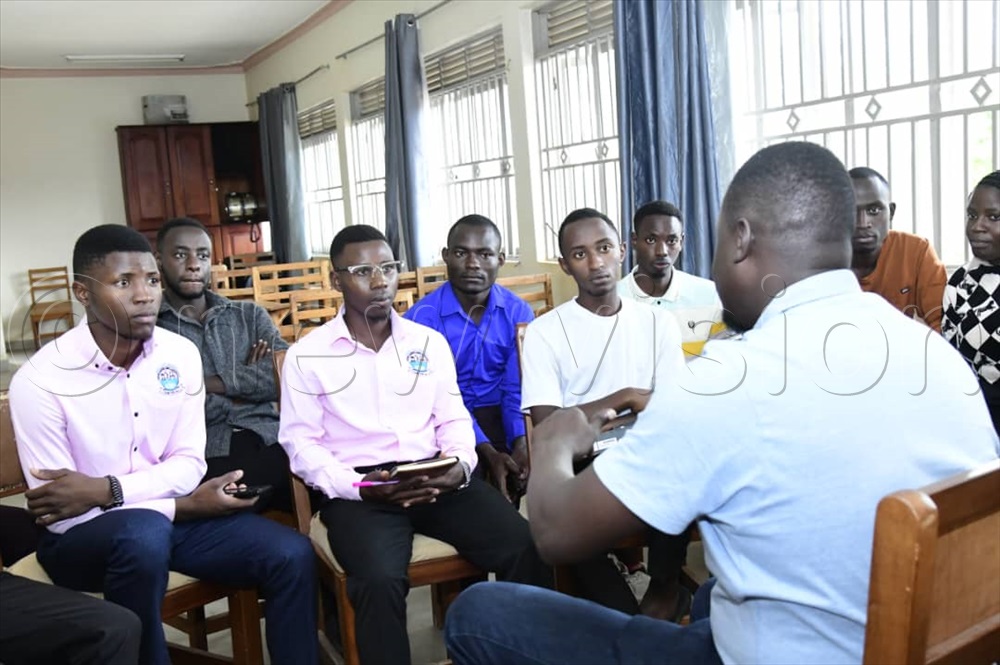
The commission says it is concerned that many online criminals are deceiving students, many of whom rely on the Internet for research and learning, to steal their personal or financial information and use it for illicit purposes.
They have used various methods of tricking their victims into revealing sensitive personal details to open fraudulent accounts or criminal activities.
Max Adii (Right), the project lead for the Ultimate University Quiz interacting with Bishop Stuart University students during an orientation session ahead of the Season Three Quiz.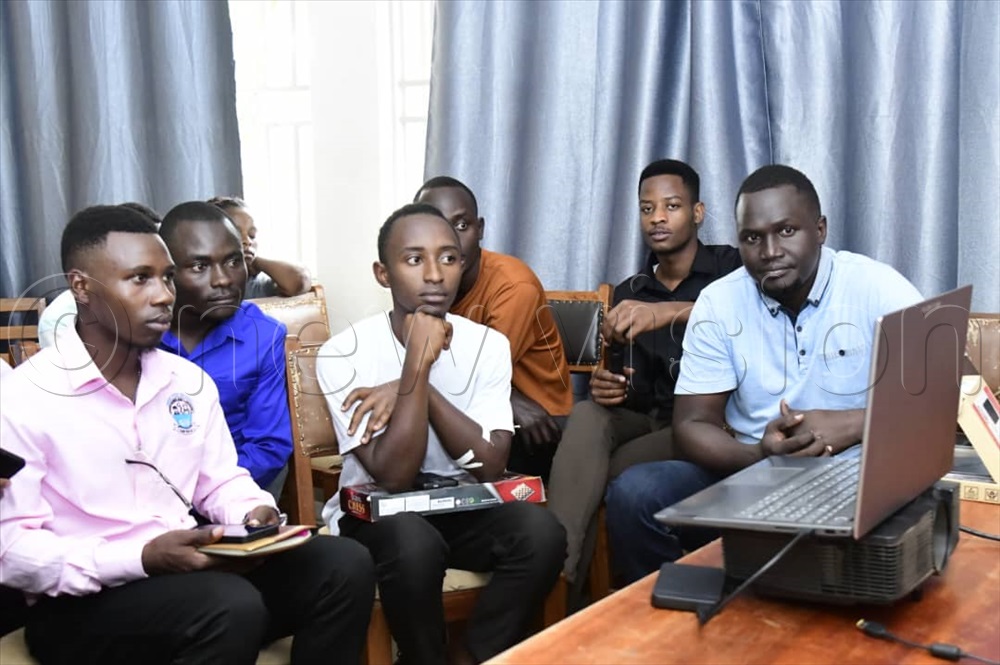
UCC southwestern region office manager Jude Mulindwa warns students against unknown people who often send them fraudulent messages, which are disguised to appear legitimate, but are intended to hoodwink them into revealing sensitive information like passwords, credit card details, or personal data.
He asks them to avoid following most of the scammers’ directives that direct them to fake websites or downloading malicious attachments, and end up installing malware on their devices.
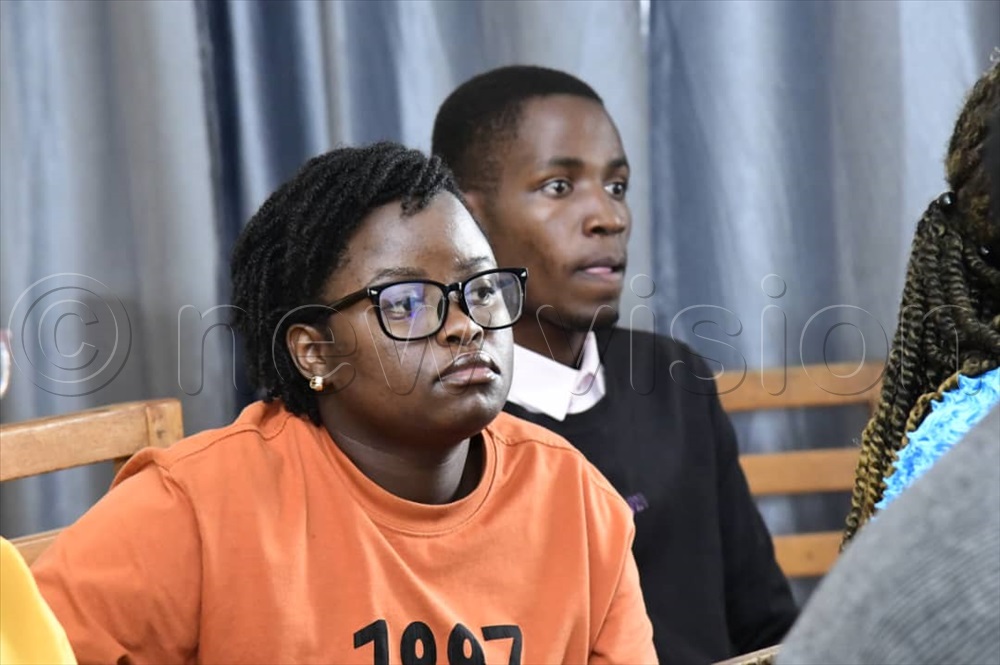
Mulindwa also warns students against using weak passwords for their digital devices like phones, laptops and computers, like date of birth, a sibling's date of birth, which he says scammers often use to hack into people’s emails, phones and WhatsApp accounts.
He was last week addressing students of Mbarara city-based Bishop Stuart University (BSU), one of the chartered Universities that has confirmed taking part in the upcoming Vision Group Ultimate University Quiz Season Three, slated to kick off on October 4,2025.
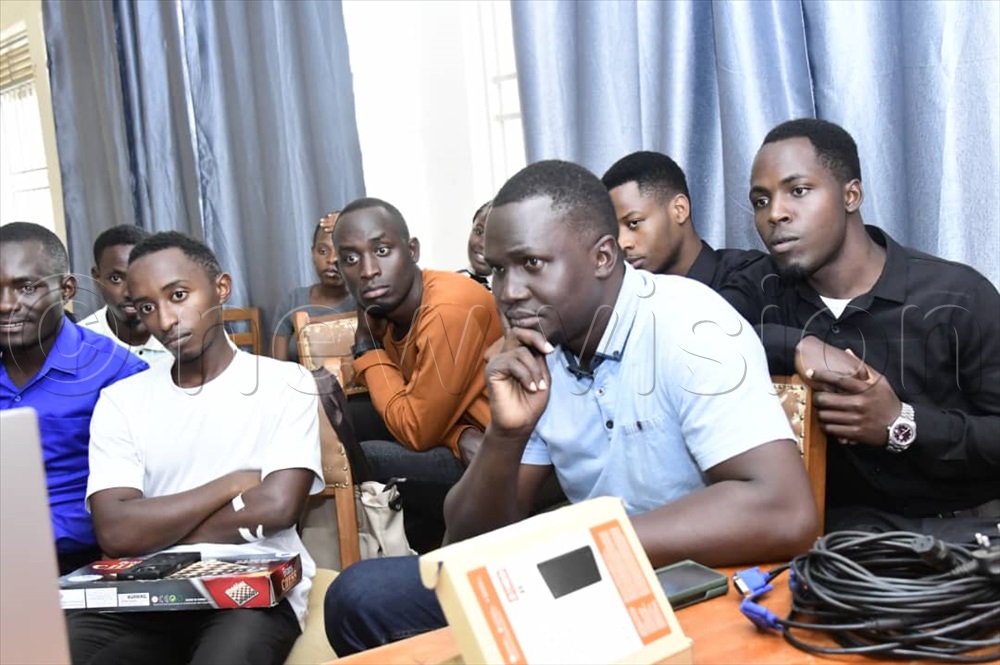
The grand finale is slated for November 27, 2025, in Kampala and over 20 chartered universities across the country are scheduled to take part. UCC, the country’s communications sector regulator, are part of the sponsorship.
The others are the National Environmental Management Authority (NEMA) and major sponsor Bank of Uganda (BOU).
Major victims
Speaking to the students during the orientation exercise, Mulindwa said UCC was targeting their messages to the public through the learners because they have been the major victims.

He, however, said they needed to understand the core principles of cybersecurity, which include confidentiality, where they must ensure that it is only authorised people who gain access to personal information.
The others, he said, include integrity, which maintains data accuracy and trustworthiness, availability, which guarantees access to data and systems, and authentication, which verifies users' identities.
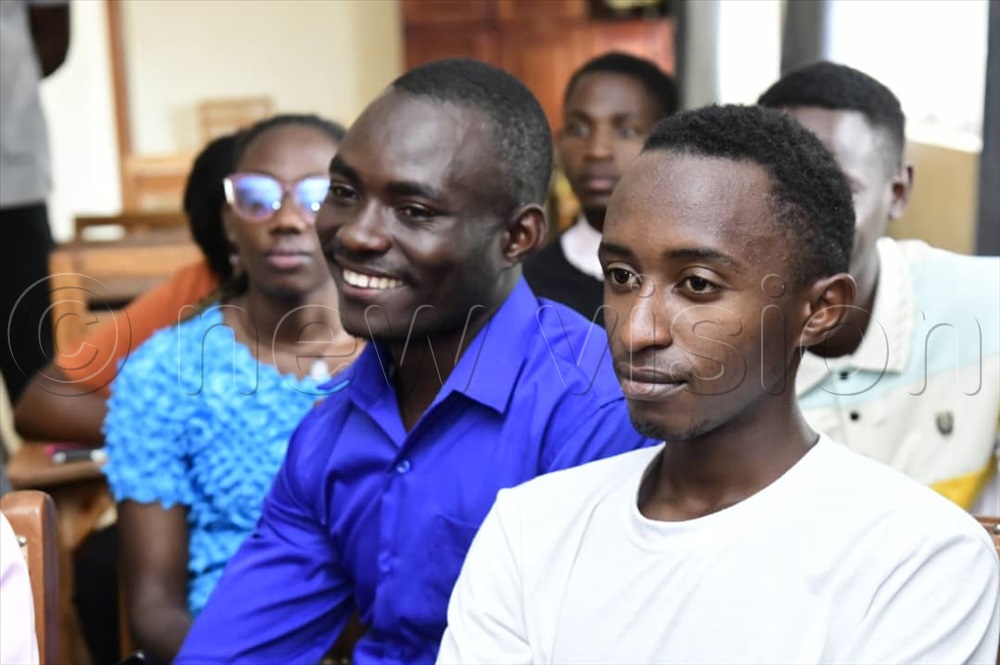
The principles help users to identify and address potential threats and protect themselves against cyberattacks.
“In the most recent scam, we have seen scammers asking receivers to click on certain links, but once you fall into their traps, they end up scamming your data on your phone and this enables them to access your WhatsApp account where they start sending messages to your people like workmates or relatives asking for money,” Mulindwa said, adding that such explained why cyber security can help anyone against such scams.
Max Adii, the project lead for the Ultimate University Quiz addressing students during an orientation session ahead of the Season Three Quiz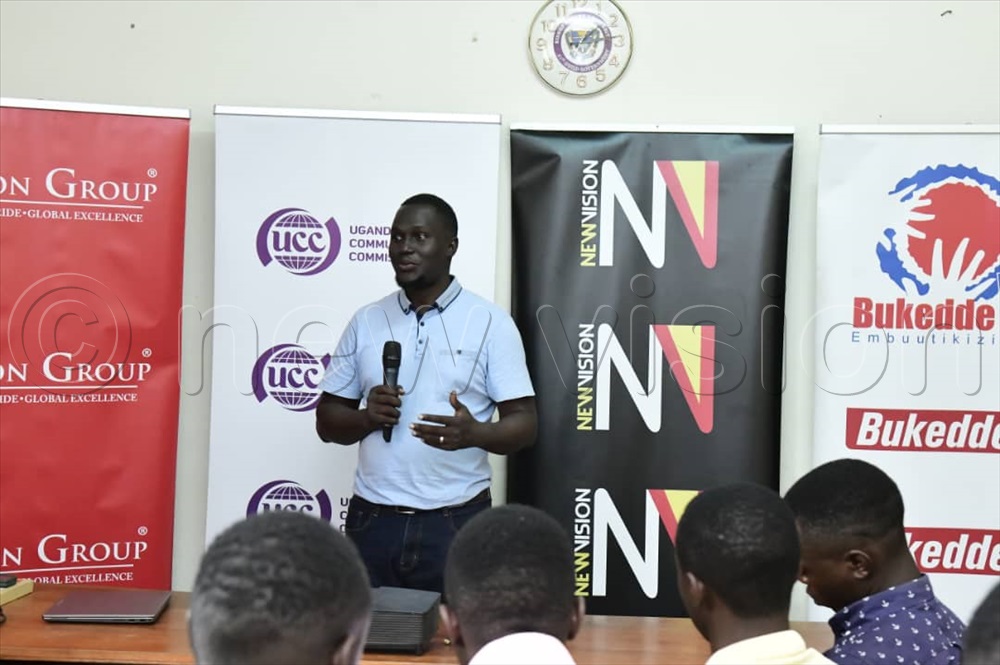
He, however, assured the public that at UCC, the Uganda National Computer Emergency Response Team (CERT) department, ensures they protect citizens from such scams.
“The team fights against international hacking systems and builds firewalls to ensure no one can hack into our systems. If you have any hacking challenges that are so critical, please always report to UCC and we shall help you,” he told the students, adding that UCC so far has best information and communications technology (ICT) experts in developing solutions to hackers.
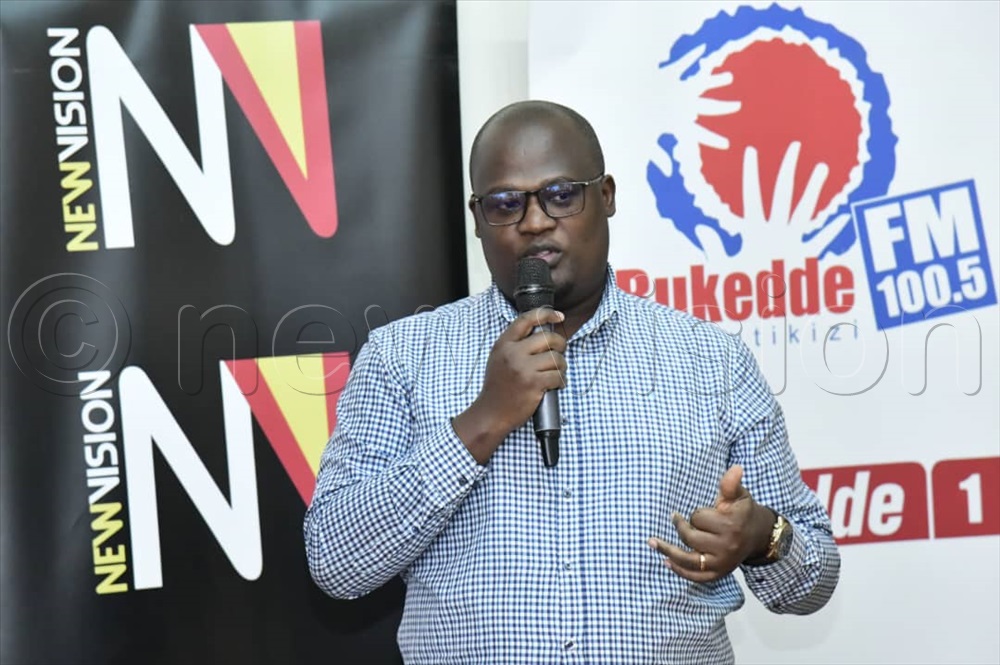
“Common cyberthreats include malware that hackers use to steal money from phones, phishing emails where hackers send fraudulent messages disguised to appear legitimate and end up hacking into your bank accounts, mobile money and other vital information,” Mulindwa said.
Man-in-the-middle attacks
He also warned students against what is termed as the “man-in-the-middle” attack, where people share their passwords with relatives or friends and hackers position themselves between two parties, intercepting and potentially altering their communications to steal sensitive data like login credentials, financial details, and personal messages.
UCC southwestern region office manager Jude Mulindwa addressing students during an orientation session ahead of the Season Three Quiz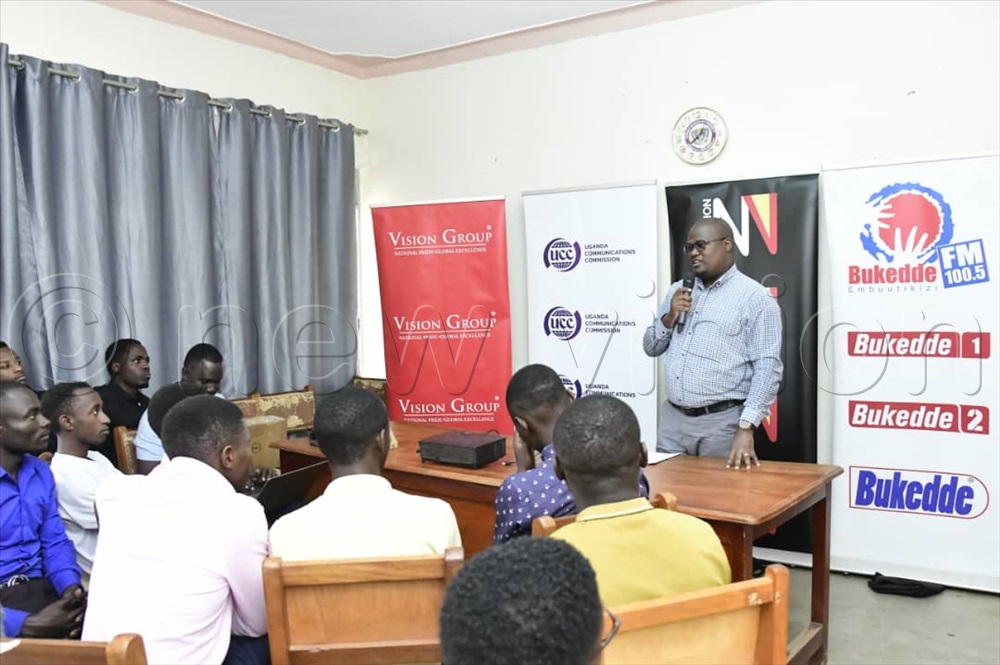
“Your brother or sister can share your password with a criminal and steal information or money from you,” he warned.
To stay safe, Mulindwa told the students, everyone must endeavour to use strong passwords and keep updating them or changing them and update their software.
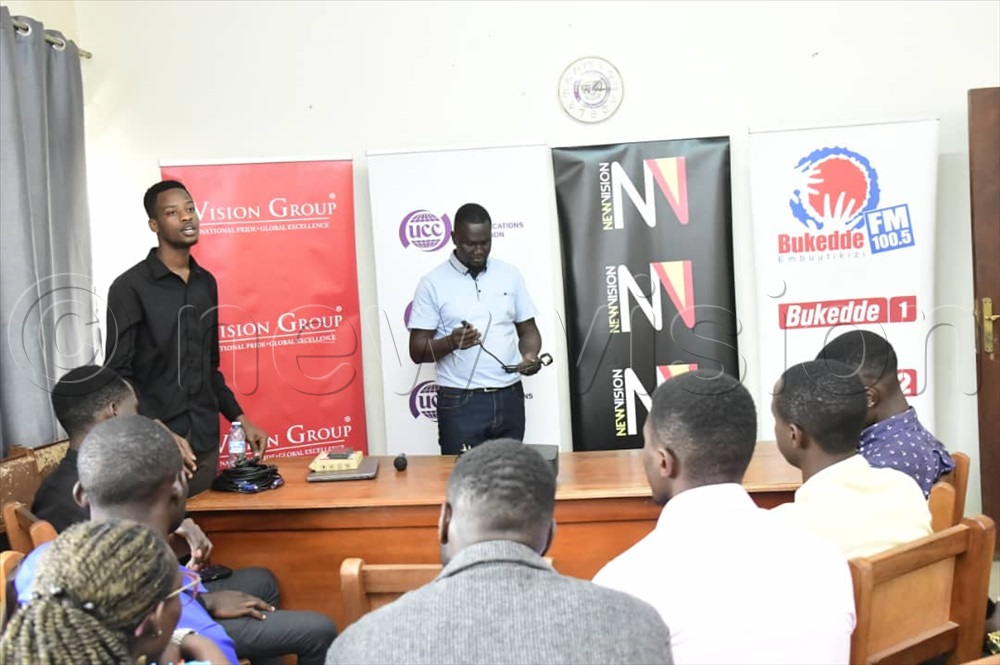
“Put regular backups on your phones, laptops, computers, use secure connections, if you find any suspicious links, please do not click on them, they could be malware,” he said, and warned them that to protect personal information, they must limit the information they share online.
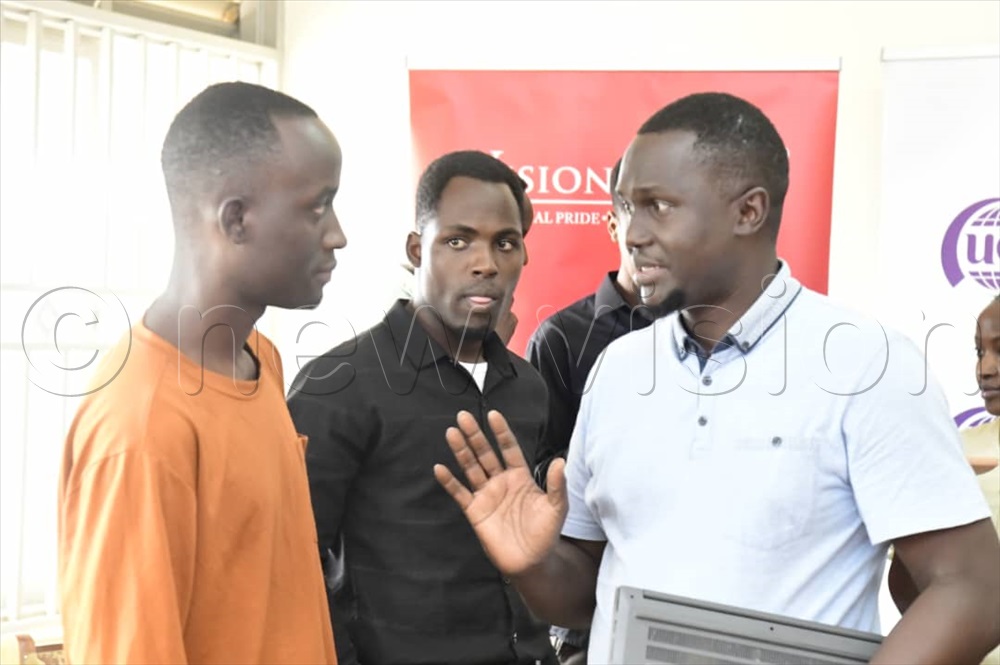
“Do not share sensitive data to people you don’t know or trust. Keep your national identity card (ID) safe because the NIN (National Identification Number) is becoming the national identity; you stand a big risk if one uses your NIN to commit a crime,” he warned.
Daphine Ayebare, Mark Kato and Ivan Binomugisha, all third-year students doing a Bachelor of Laws, vowed to do their best to ensure they compete and win prizes.
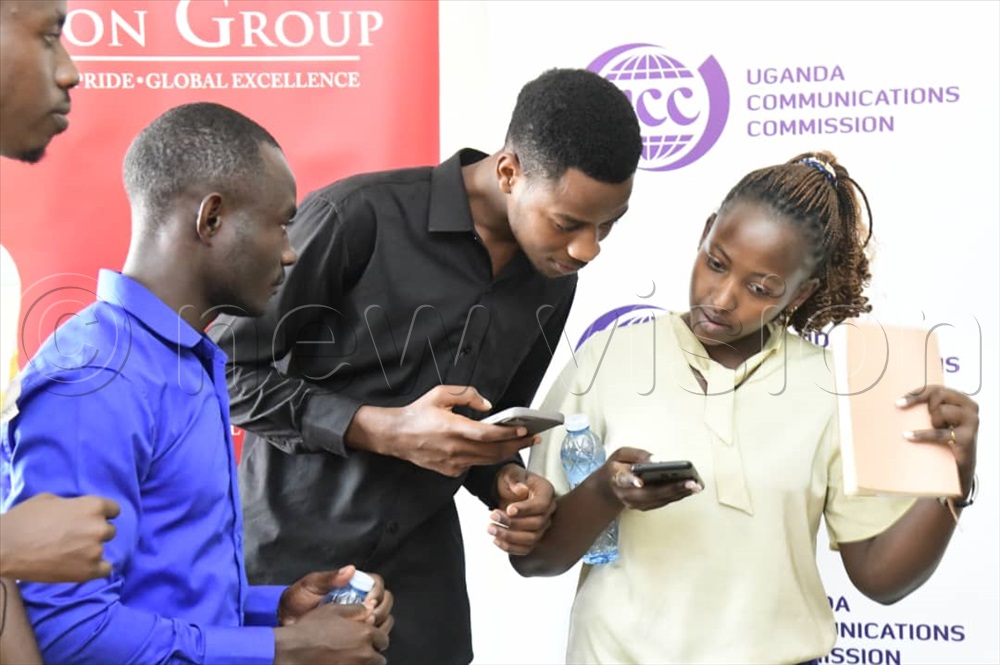
Max Adii, the Vision Group’s project lead for the Ultimate University Quiz, disclosed that the orientation exercise would move to more than 20 universities before the games start on October 4, preaching to the students about the exercise.
“So that we can prepare them in terms of participation, share some of the tactics, and the processes they have to go through so that they can participate successfully,” he explained.
According to Adii, the orientation helps both students and administrators know how to participate and provides the opportunity to ask necessary questions.
The orientation kicked off last week with the Western route and will include other routes, such as the Eastern, Northern, and West Nile routes, before concluding with universities in the Central Region.